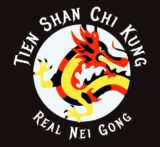Zen vs. Taoist Internal Alchemy: A Comparative Exploration of Spiritual Paths
Zen and Taoist Internal Alchemy represent two powerful and profound systems of spiritual cultivation. Each has its methods, goals, and philosophies. While both paths seek to elevate consciousness and lead practitioners toward enlightenment, they do so in significantly different ways. Zen is traditionally associated with stillness, simplicity, and an emphasis on “being” in the present moment. Taoist Internal Alchemy offers a more energy-centric approach. Focusing on the cultivation, transformation, and circulation of internal energy or Qi to achieve physical, mental, and spiritual growth.
Understanding the distinctions between Zen and Internal Alchemy can illuminate how each system approaches the challenges of spiritual evolution. And why practitioners might choose one over the other based on their spiritual needs. This article will explore the similarities and differences between these two paths. Focusing on their unique methodologies, and their views on energy. And the ways they influence spiritual progression.
Zen: The Path of Stillness and Insight
Zen (禅), is a branch of Mahayana Buddhism that developed in China and later spread to Japan. And focuses on the direct experience of Satori (enlightenment) through meditation and mindfulness. At its core, Zen practice revolves around the principle of “just sitting” (Zazen, 坐禅). Where the practitioner engages in seated meditation, allowing thoughts to come and go without attachment or judgment.
In Zen, the ultimate goal is to transcend the dualities of thought and experience pure awareness. The emphasis is on non-doing.—Allowing the mind to settle into a state of deep calm, clarity, and insight. By silencing the incessant chatter of the mind, Zen practitioners aim to pierce through illusions and attain a direct realization of the nature of reality. Often referred to as “seeing one’s true nature.”
The Zen posture (Zazen) is simple and minimalist. Designed to encourage both physical stillness and mental tranquility. The technique is often considered weak in terms of energy cultivation. As its focus is less on actively manipulating energy and more on cultivating presence and awareness. This does not mean that Zen is without energy dynamics. However, the posture itself does not typically promote the strong energy circulation that is seen in Taoist practices like Internal Alchemy.
Frontal Lobe Activation
Zen meditation, especially in advanced stages, is known to increase activity in the frontal lobes of the brain. Lobes of the brain are associated with higher thinking, insight, and concentration. However, this can also make it more difficult to stop thinking. Which is why Zen can be seen as a more advanced practice. Sending energy to the frontal lobes can keep the mind engaged. Making the goal of “no-mind” (the absence of thought) a more challenging endeavor.
Zen’s minimalist, introspective approach is largely focused on self-honesty.—Facing one’s internal darkness, recognizing the illusions of the ego, and ultimately abandoning conceptual knowledge. The process of enlightenment in Zen is often described as a harsh and brutal confrontation with reality. Where the practitioner must strip away layers of self-deception to arrive at a state of pure awareness. This self-honesty is essential for achieving clarity. And post-enlightenment, it brings about a state of wordless, intuitive knowing.
Taoist Internal Alchemy: The Path of Energy Cultivation and Transformation
Taoist Internal Alchemy (内丹, Neidan), on the other hand, offers a more dynamic and energy-focused approach to spiritual development. Originating from ancient Taoist practices aimed at health, longevity, and immortality, Internal Alchemy emphasizes the cultivation and refinement of internal energy (Qi). To achieve both physical rejuvenation and spiritual enlightenment.
Whereas Zen relies on mental stillness and insight, Internal Alchemy focuses on the transformation of energy within the body. Taoist practitioners work to circulate Qi through specific energy centers, known as Dantian (丹田), and energy channels, or meridians. This process involves multiple stages. From building Qi in the lower Dantian to refining and circulating it through higher centers of the body. Ultimately aiming to ascend to spiritual realms.
Longevity and Energy Cultivation in Zen vs Internal Alchemy
One of the key distinctions between Zen and Internal Alchemy is the emphasis that Taoist alchemy places on longevity and vitality. Taoist masters believe that the longer one lives, the more time one has to make spiritual progress. Internal Alchemy practices are designed to enhance physical health, rejuvenate the body, and increase one’s life force, or Qi. Through the cultivation of Qi, a practitioner becomes more vibrant, energetic, and, importantly, happier, which creates a more conducive environment for spiritual growth.
In contrast to Zen’s simplicity, Taoist Internal Alchemy employs breathing exercises, energy visualization, and postures to cultivate a strong flow of energy within the body. By harnessing and refining this energy, Taoist practitioners can strengthen their life force. You are making them more resilient and capable of spiritual work.
The Taoist view is that with an abundant supply of energy. And the process of meditation becomes much more powerful. When engaging in Zen-style meditations (which are included in many Taoist practices), a practitioner with a strong foundation of Qi will progress much faster. Because they have more internal energy to work with. However, this can also make the process more challenging. Increased energy in the body, can amplify mental distractions or difficulties. Forcing practitioners to confront their inner darkness more intensely.
Spiritual Growth and Zen vs Internal Alchemy
The ultimate goal is to refine and purify one’s Qi to the point where it transcends the body and merges with the Tao. Leading to spiritual immortality. This process is often likened to turning “lead into gold” in Western alchemical traditions.—Symbolizing the transformation of base energy into pure spiritual essence.
Internal Alchemy involves a deep connection between the body and mind. But unlike Zen, which encourages the practitioner to empty the mind, Internal Alchemy is concerned with doing things with the body. While keeping the mind in a state of non-thinking awareness. This means that the mind should not be preoccupied with thoughts but should remain in a state of simple awareness and feeling. Guiding the body’s energy through the process of transformation.
In this way, Taoist Internal Alchemy involves a more active engagement with the body’s energetic system. As opposed to the passive observation that characterizes Zen meditation. The practitioner is not just sitting in awareness. But is actively circulating energy, refining it, and directing it toward specific spiritual goals.
Zen vs Internal Alchemy: The Challenges of Spiritual Honesty
Both Zen and Taoist Internal Alchemy emphasize the importance of self-honesty on the spiritual path. In Zen, self-honesty manifests as the recognition of one’s mental illusions, egoic attachments, and internal darkness. The practice involves ruthlessly confronting these aspects of the self to achieve true enlightenment. This process can be brutal and, for some, overwhelming. As it forces the practitioner to see reality as it is. Without the comforting filters of the ego.
Taoist Internal Alchemy also emphasizes self-honesty but does so through a different lens. The practice involves confronting and transforming one’s internal energy patterns.—Many of which may be rooted in negative emotions, past traumas, or karmic blockages. As energy is refined, these aspects of the self rise to the surface, and the practitioner must face them to progress. The process of transformation in Internal Alchemy is not only about cultivating more Qi. But also about refining the quality of that energy, purging it of impurities.
After an enlightening experience in either Zen or Internal Alchemy, the practitioner gains the ability to perceive the honesty (or lack thereof) in others. Which can be a source of both clarity and difficulty. The increased awareness that comes with spiritual progress can make it harder to interact with a world that is often filled with deception and illusions.
The Role of the Body and Mind in Zen vs Internal Alchemy
While Zen meditation focuses on achieving a state of non-thinking and resting in pure awareness, Taoist Internal Alchemy takes a more integrative approach. The body and mind work together in Internal Alchemy. With the body serving as the vessel through which spiritual transformation occurs.
In Internal Alchemy, the mind is not meant to dominate the process with thoughts or intentions. Instead, it should remain in a state of quiet, simple awareness, allowing the body’s energy to circulate and transform. The mind acts as a guide. Focusing on specific energy centers. And directing Qi without engaging in intellectual or conceptual thought. This distinction is crucial: Zen seeks to silence the mind. While Internal Alchemy uses the mind in a non-thinking state, to facilitate the flow of energy.
The Goal: Enlightenment or Immortality?
Both Zen and Internal Alchemy seek to lead the practitioner toward a higher state of consciousness, but the end goals differ slightly. In Zen, the ultimate goal is enlightenment.—The direct realization of the true nature of reality. Enlightenment in Zen is often described as a sudden, profound insight that reveals the interconnectedness of all things and the illusory nature of the self.
Taoist Internal Alchemy, while also concerned with spiritual enlightenment, places greater emphasis on immortality.—Not necessarily physical immortality, but the immortality of the spirit. The process of refining and cultivating Qi leads to a state where the practitioner’s energy merges with the Tao. Achieving spiritual transcendence. In this way, Internal Alchemy sees the body and its energy as the primary tools for spiritual transformation.
Choosing a Path
Both Zen and Taoist Internal Alchemy offer profound systems for spiritual development, each with its strengths and challenges. Zen’s focus on stillness, simplicity, and direct insight makes it a powerful tool for those seeking to transcend thought and experience reality as it is.
Taoist Internal Alchemy, with its emphasis on energy cultivation and transformation, offers a more dynamic and integrative approach, combining physical vitality with spiritual growth.
Ultimately, the choice between Zen and Internal Alchemy depends on the individual’s spiritual goals and temperament.
Those who are drawn to simplicity and insight may find Zen’s minimalist approach appealing. While those seeking to actively cultivate and transform their energy may be more suited to the practices of Taoist Internal Alchemy. Both paths lead toward the same ultimate goal: A deeper connection with the self, the universe, and the divine.

